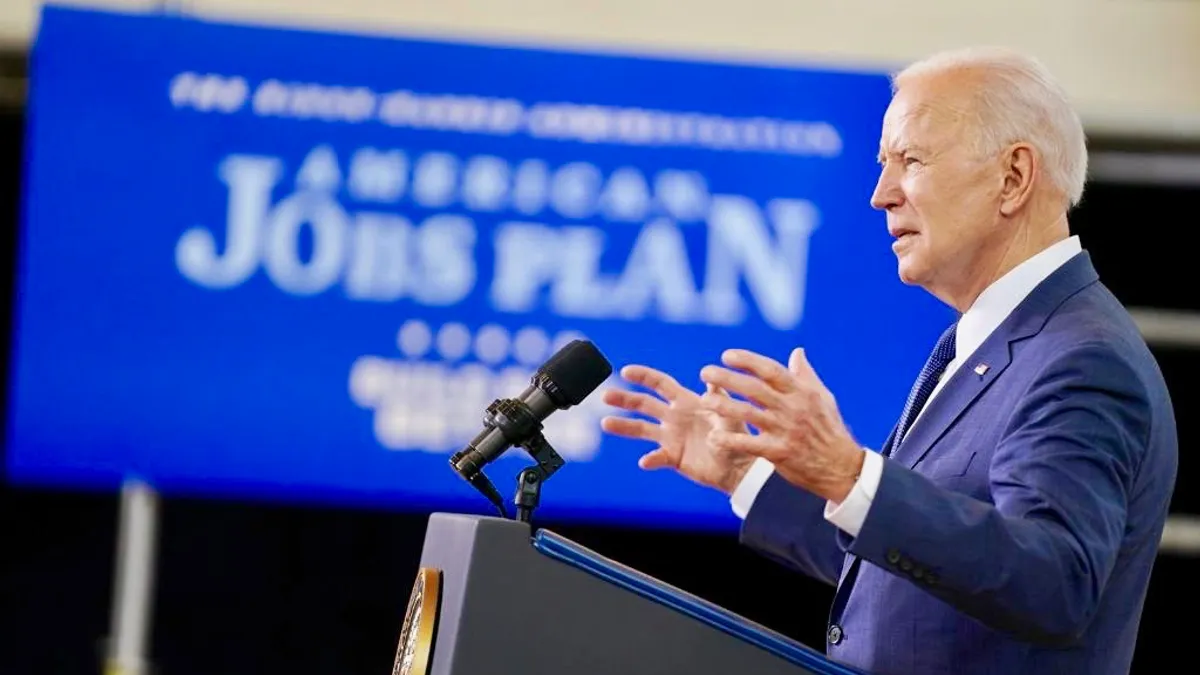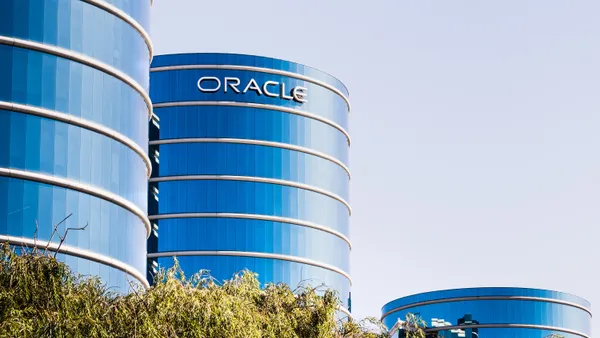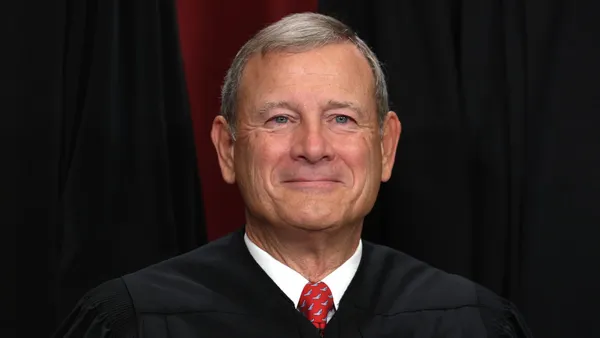Dive Brief:
- The Biden administration allowed Presidential Proclamation 10052, a directive issued by former President Donald Trump to temporarily suspend entry of certain visa holders, to expire March 31, according to a statement from the U.S. Department of State's Bureau of Consular Affairs.
- Trump's original suspension on visa holders, which impacted visa categories such as the H-1B and H-2B visa programs, was set to expire Dec. 31, 2020, before the former president extended the suspension through March 31, 2021. Trump said he enacted the directive because the entrance of visa holders "posed a risk of displacing and disadvantaging United States workers during the economic recovery following the COVID-19 outbreak," and he said the suspension merited extension into 2021 because existing concerns had "not been eliminated."
- Visa applicants who have not yet been interviewed or scheduled for an interview "will have their applications prioritized," the State Department said. The agency added in a separate statement that it is "unable to provide a specific date for when each mission will resume specific visa services," instead noting that the resumption of services would occur on a "post-by-post basis."
Dive Insight:
The announcement may provide some clarity for employers that have relied on the H-1B program in their talent acquisition programs in recent years. However, federal officials are still dealing with visa application backlogs formed during the pandemic that "are likely to grow," according to immigration services law firm Fragomen.
"Employers should keep in mind that while many processes are electronic, there are still a good amount of paper components that slow the overall system," Richard Burke, CEO at immigration services company Envoy Global, told HR Dive in an email.
Elsewhere, the Biden administration is still re-evaluating Trump-era policies impacting H-1B visa holders and applicants. Last month, the U.S. Department of Labor proposed a rule delaying proposed adjustments to the wage levels employers must maintain for H-1B visa holders and other employment-based visa programs. Should the delay take effect, it would extend the effective date of the wage-level proposal into 2022.
The H-1B program, as with other related issues, remains a contentious subject in certain circles despite its importance to employers and business groups. In February 2020, one group of business leaders called for a streamlining of the H-1B application and approval process that would include increasing the frequency of visa allotments, among other measures. A report last year by the nonprofit National Foundation for American Policy found that denial rates for H-1B petitions had risen from 6% in the 2015 fiscal year to 29% through the end of the second quarter of the 2020 fiscal year.
From a talent acquisition perspective, the inability to obtain work authorization for highly skilled talent is a "primary driver" for employers deciding to expand to new geographies, according to a 2020 report by immigration services firm Envoy Global. A recent Boston Consulting Group report found that countries such as Canada and Australia have made strides last year in competing with the U.S. to attract skilled talent.













